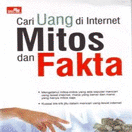Minggu, 09 Juni 2013
Arti – Definisi – Pengertian Hyper-Inflation
Very, very bad. Although people debate when, precisely, very rapid INFLATION turns into hyper-inflation (a 100% or more increase in PRICES a year, perhaps?) nobody questions that it wreaks huge economic damage. After the first world war, German prices at one point were rising at a rate of 23,000% a year before the country’s economic system collapsed, creating a political opportunity grasped by the Nazis. In former Yugoslavia in 1993, prices rose by around 20% a day. Typically, hyper-inflation quickly leads to a complete loss of confidence in a country’s currency, and causes people to search for other forms of MONEY that are a better store of value. These may include physical ASSETS, GOLD and foreign currency. Hyper-inflation might be easier to live with if it was stable, as people could plan on the basis that prices would rise at a fast but predictable rate. However, there are no examples of stable hyper-inflation, precisely because it occurs only when there is a crisis of confidence across the economy, with all the behavioural unpredictability this implies.
Langganan:
Posting Komentar (Atom)

















Tidak ada komentar:
Posting Komentar
Catatan: Hanya anggota dari blog ini yang dapat mengirim komentar.